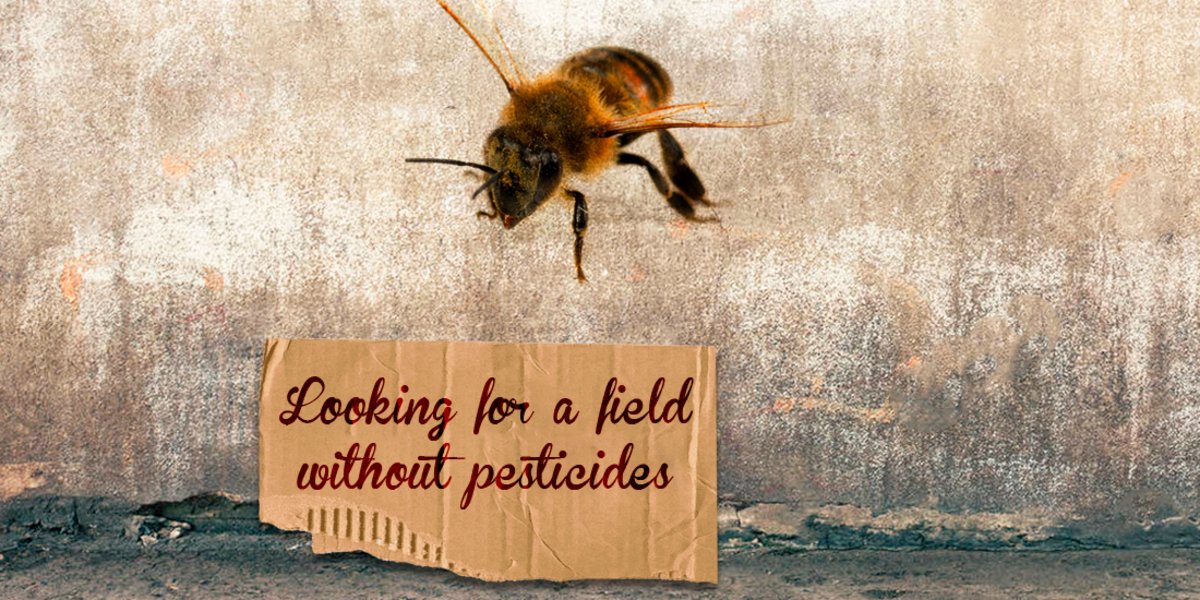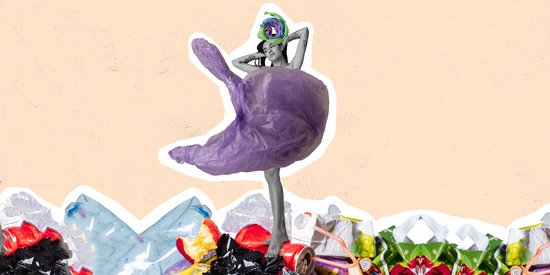Neonicotinoids = bee killers. The use of neonicotinoids threatens the existence of bees, which are important for biodiversity, because without bees there is no pollination.
First of all, we are going to carry out a small inventory of the practices of these little striped insects.
The sexual reproduction of plants usually depends on pollination (reproduction can also be asexual; as in the case of strawberries). Bees and certain other insects participate in the pollination process. A bee collects nectar and pollen via a flower. It is then that part of the pollen present on the stamens (the male reproductive organ of the flower) sticks to the hairs distributed around the perimeter of its body. After harvesting from this flower, the bee then goes off to another flower to harvest more nutrients. In the meantime, part of the pollen stuck to its hairs is deposited on the stigma (the female reproductive organ) of the flower. And so, fertilization takes place through this union. Delicious fruits can then develop to delight our taste buds.
However, small human beings that we are, we create new and multiple dangers for the bees, and, in particular, neonicotinoids!
These neonicotinoid pesticides include clothianidin, imidacloprid and thiamethoxam. It all starts with the arrival of Myzus persicae (a green aphid), sucking the appetizing sap contained, for example, in sugar beet plants. The plants are then plagued by jaundice, leading to decay.
To date, only neonicotinoids are able to prevent this premature death of beet plants. As a result, farmers expect a 50% drop in their harvest without this insecticide.
But what does it have to do with bees?
This pesticide is found in the pollen and nectar contained within flowers and of course, these neonicotinoids have harmful effects for bees. Only 0.000000001 g of a neonicotinoid would reduce the ability of the bee to be able to find its hive. According to numerous scientific studies, during exposure to this substance, during the first days of their life, bees have a reduced life expectancy. The queen is then no longer properly fed, and the very persistence of the entire colony is at risk. Disorientation of the foragers, limitation of the development of the queens and the growth of the hive are therefore the main consequences of this exposure.
In addition, a fungicide (boscalid) could interact with this pesticide and increase its danger to bees. Not to forget, these neonicotinoids are soluble in water and therefore also spread on the fields!
But let's not be selfish either, of course the farmers are aware of this tragedy but they must also have a sufficient yield. And yes, they also have to feed themselves and their families! This paradox is therefore quite complicated because so far, no alternative has been found.
But what about the beekeepers?
Daniel Rochas, retired, (non-professional) beekeeper, France: Neonicotinoids are a problem for bee colonies. The bees decline in the fields and do not return to the colony, thus causing a weakening of the colony and an increase in their susceptibility to other diseases. In fact, it sometimes happens that professionals find high levels of mortalities near field crops. Veterinary specilalists can then be called in to trace this massive loss and the search for toxic substances. However, this has only been happening for a short time and ultimately only generates a validation of the state of the hive, without bringing any direct benefit to the beekeepers.
Alain Péricard, ecological beekeeper at the Apis biological apiary, in Quebec:
As a beekeeper, have you noticed a decrease in the density of your colonies?
We are certified as an organic producer and are therefore located in an area which is free of pesticides. We have to provide our certifier with a map with all the plots under cultivation within a radius of 3 km from our hives, and indicate if there are any pesticides, in particular neonicotinoids. Only one of our neighbors grows corn, but we have an agreement with him, so that his corn is neither OGM nor coated with neonicotinoids or diamides (also a harmful insecticide). This year I overwintered 100% of my 42 hives, which are remarkably strong. But our situation is not representative of Quebec beekeeping in general….
Has colony fragility, linked to greater susceptibility to other diseases, appeared?
Nope! We make a genetic selection of lines of hygienic queens and we apply very strict sanitary measures. The only pathogen we really need to control is Varroa, for which we have developed an effective protocol.
What are your opinions regarding the reintroduction of these neonicotinoids in France?
Seed companies and sellers of bee-killing pesticides constitute – along with certain agricultural organizations – extremely powerful lobbies. The arguments used are dubious (if I'm not mistaken "the future of the sugar industry in France"), but they are always ahead of independent research on the impact of pesticides. These people operate in the short term, each year the use of a product provides considerable profits and dividends to shareholders during the financial year. The long-term impacts are not taken into account, nor the combined impacts of all the chemical molecules used in the crops. But there are strong presumptions of negative effects, especially as endocrine disruptors. Clearly, it is the health and survival of our children and grandchildren that is at stake. As for the impacts on the fauna, they are now well documented and concern not only pollinating insects, but also aquatic invertebrates, small mammals and insectivorous birds, among others.
What are your views on keeping these neonicotinoids in Canada?
The federal regulatory body, Arla, is not fulfilling its role. So-called “research” by mercenary scientists from the industry is considered valid, and independent research is not sufficiently funded. Governments are flat in the face of powerful agricultural organizations (in Quebec, the UPA) and environmental movements are not really mobilized. There are many whistleblowers and journalists who report the facts, but public opinion fails to draw the conclusions, namely, that if we do not take to the streets nothing will change. In Quebec we do not like “chicanes” (conflicts). In our professional organization, Apiculteurs et Apicultrices du Québec, there are a few people who are in favor of demonstrating loudly, but we are not the majority. So, nothing ever changes.
And so there are the final words... be aware of the bees!







